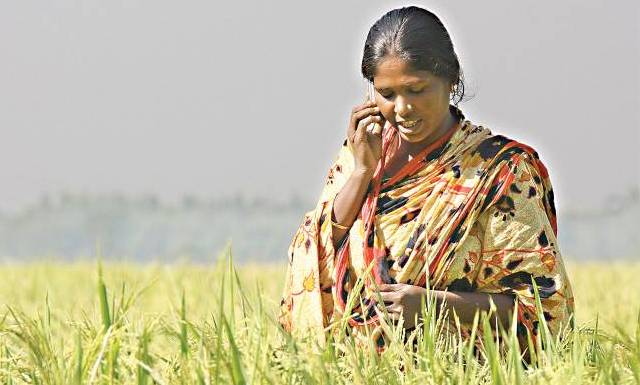Bharti Airtel and Reliance Jio are expected to increase their mobile tariff during the financial year, according to Fitch Ratings.
 Bharti Airtel is expected to increase its mobile tariff by 5-10 percent during the financial year 2019-20, Fitch Ratings said on July 29.
Bharti Airtel is expected to increase its mobile tariff by 5-10 percent during the financial year 2019-20, Fitch Ratings said on July 29.
Reliance Jio may increase wireless tariffs gradually as it starts to focus on monetisation of its investment in 4G network. The report did not talk about the possible increase in mobile tariff from Vodafone Idea and BSNL.
“We expect competition to ease as three broadly equally sized telecoms have emerged, each with 31-33 percent revenue market share,” Nitin Soni and Kelvin Ho, analysts at Fitch Ratings, said.
Airtel’s Indian ARPU is expected to grow by 5-10 percent in fiscal 2020 as the incumbents focus on boosting profitability with the introduction of a minimum recharge plan of INR35 or USD0.5 per month.
There are about 100-150 million rural subscribers who pay significantly below the industry average tariff. The incumbents’ initiative to raise the minimum phone tariff will result both in higher ARPU and, importantly, EBITDA growth.
Airtel’s Indian mobile EBITDA rose 32 percent year-on-year during Q4 fiscal 2019, and the EBITDA margin expanded by 500bp quarter-on-quarter to 24 percent as ARPU increased to INR 123 or USD1.7 from INR 104 in Q3 FY19.
Jio is expected to surpass Bharti Airtel and Vodafone Idea in terms of revenue market share by end-December 2019, Fitch Ratings said.
Jio achieved revenue growth of 44 percent to $1.7 billion in Q1 fiscal 2019-20 mainly driven by addition of subscribers, mostly at the expense of Vodafone Idea. EBITDA of Reliance Jio rose 49 percent to $670 million y-o-y while ARPU remained flat around INR122 or USD1.7 per month per user.
5G auction
Telecom Regulatory Authority of India’s (TRAI) 5G spectrum price for spectrum band of 3300- 3600MHz of $70 million per MHz is expensive compared with 3G and 4G spectrum auctions in the past.
At the current price, each telecoms will need to commit roughly around $7 billion for a pan-India licence for 100MHz of 5G spectrum.
There will be limited participation in the 5G spectrum auctions in India by Bharti Airtel and Vodafone Idea – given the expensive spectrum and limited business case of 5G in the short to medium term.
5G has only limited commercial viability in the short term, as 4G penetration is still low in India and there is little appealing content or applications – which cannot be addressed by 4G speeds.
Indian telecoms lack extensive intra-city fibre infrastructure, which is responsible for poor internet experience relative to other markets and is also critical in order to provide a seamless 5G experience.
Airtel’s FY20 Capex/revenue is expected to be at 34-37 percent with Capex forecast of around $4 billion. Airtel will invest to strengthen its 4G network infrastructure and invest in fibre infrastructure, Fitch Ratings said.
Airtel India management during the recent earnings calls said that it expects its core Capex, which excludes deferred spectrum payments, to have peaked and to decline significantly in fiscal 2019-20.
Airtel Africa
Airtel Africa’s revenue and EBITDA are expected to grow by a high-single-digit percentage in fiscal 2019-20, driven by steady growth in subscribers and mobile money services. There will be a small reduction in ARPU in the African markets due to competition. Mobile money services are likely to account for over 10 percent of revenue from the African operations in FY20 from the current 8 percent.
Research agency Ovum said Airtel now commands number 1 or 2 market positions in 11 out of the 14 African markets.
Airtel’s equity stake in Airtel Africa will come down to 55 percent after the overseas IPO, Fitch Ratings said. Airtel Africa’s net debt/EBITDA had improved to 3.0x by FYE19 (FY18: 6.8x) due to EBITDA growth and debt repayment from pre-IPO private placement proceeds.





